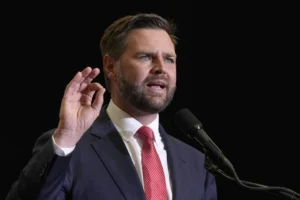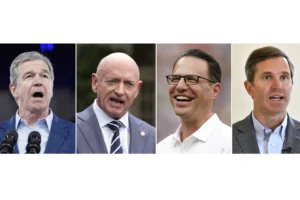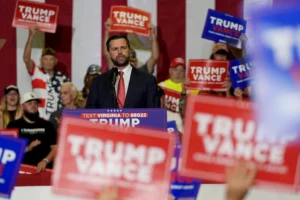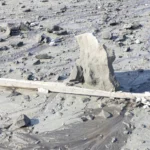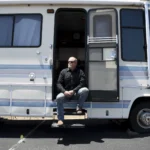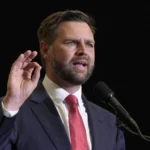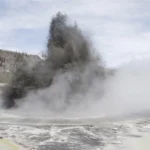Proposed Initiative Could Halve Wyoming Residents’ Property Taxes
Group has until February to gather 29,730 signatures
- Published In: Politics
- Last Updated: Sep 05, 2023
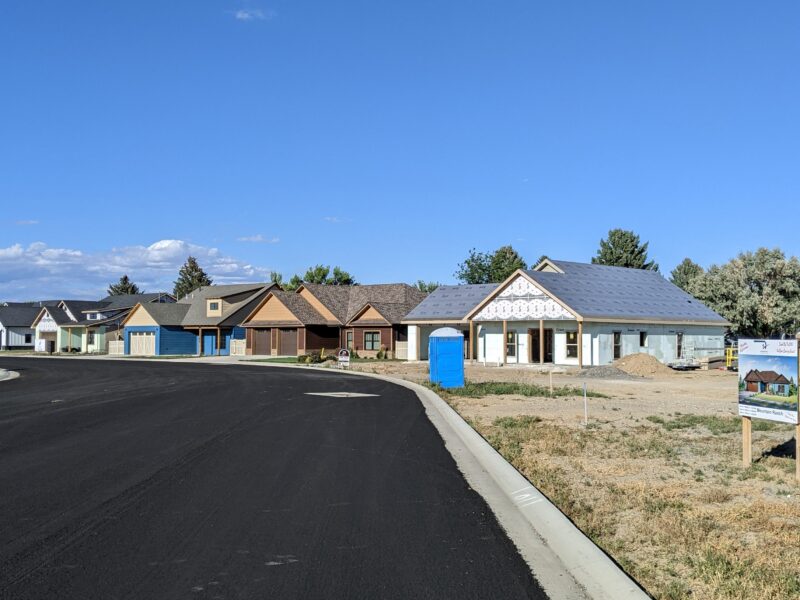
The real estate market boomed in places like Park County following the COVID-19 pandemic, sending property values and taxes soaring. A new initiative aims to halve residents’ tax bills on their primary home. (Wyoming Truth photo by CJ Baker)
By CJ Baker
Special to the Wyoming Truth
After watching state lawmakers reject multiple property tax-cutting proposals last winter, Brent Bien decided it was time for a new approach.
“I said, ‘OK, if the Legislature’s not going to do it, then the people are going to do it,’” Bien recalled.
Last week, he and a couple of like-minded Wyomingites unveiled a proposed initiative that would put the issue directly in the hands of voters in the 2024 General Election — effectively asking homeowners if they want to cut their tax bills in half.
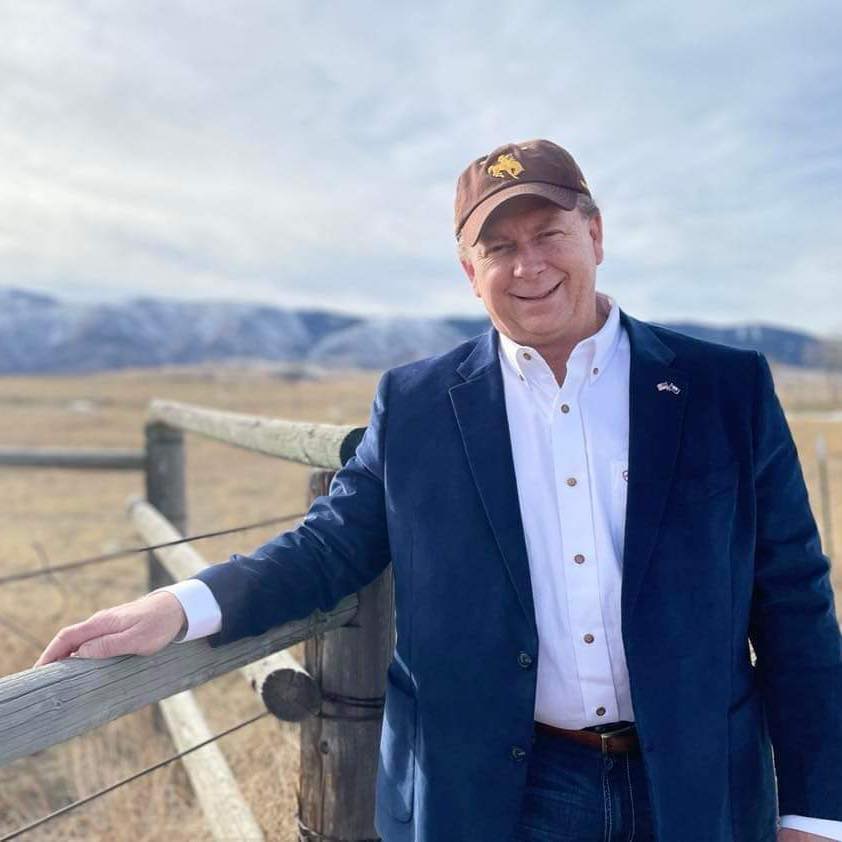
The “People’s Initiative to Limit Property Tax in Wyoming through a Homeowner’s Exemption” would take a property owner’s primary residence and exempt 50% of its fair market value from taxation. It would potentially take a couple hundred million dollars away from the government each year, leaving the money in homeowners’ pockets.
“Instead of doing it the way the left does it, where they give their constituents or whomever other people’s money, I simply just want people to keep their money, so they can stay in this state,” Bien told the Wyoming Truth.
During an unsuccessful gubernatorial run last year, Bien said he heard “all of these almost horror stories of people not being able to pay their property tax” and “I still feel an obligation to these folks around the state.”
He’s joined with Cheryl Aguiar of Thermopolis and Rich Weber of Story to form “BCR Voter Initiatives,” which draws its acronym from their first names. The trio will need support from many more Wyomingites to make the initiative a reality: Just to put the proposal in front of voters in 2024, the committee must gather 29,730 signatures before the Legislature convenes in mid-February.
Under the proposal, property owners could claim the 50% tax exemption after living in the state for a year. They would also have to have lived in the home for at least six months during the prior year.
Looking for more relief
Property taxes have taken center stage in Cowboy State politics since a post-pandemic boom in real estate. Between 2019 and 2021, the value of the state’s residential properties rocketed 32.5%, with Teton, Park and Sheridan counties seeing sharper increases. Prices kept rising in 2022, and lawmakers entered last winter’s General Session with relief top of mind.
Well over a dozen different bills were put forward, with approaches ranging from capping annual increases to overhauling how properties are valued. Three made it into law:
- an expansion of a tax refund program targeted at lower-income households;
- a study of taxing properties based on what the buyer originally paid (the acquisition value) instead of current values; and
- a proposed constitutional amendment that would allow lawmakers to modestly lower taxes on residential properties in the future.
While legislative leaders said the measures reflected a commitment to reduce tax burdens, frustrated constituents packed a Joint Revenue Committee meeting in June to demand more relief. Bien said his group’s proposed initiative sends a message of, “Look, you guys get your act together, because the people are sick and tired of this stuff.”

As for why the group picked a homestead exemption, Bien said its simplicity was appealing, along with the idea that “there should be a benefit for living in Wyoming.”
Similar proposals failed last winter. House Bill 98, which sought to exempt up to $50,000 of a home’s fair market value, cleared the House 46-15, but died in the Senate Revenue Committee.
Both the Wyoming Taxpayers Association and the Petroleum Association of Wyoming (PAW) lobbied against HB 98. Representatives of the organizations said any relief should be targeted at those in need, since broad-based exemptions on residential property will exacerbate the state’s dependence on taxes from the minerals industry.
“The citizens of Wyoming already have an extremely low tax burden for the cost of services that we receive, and not all citizens are wanting this [homeowner] exemption,” Wyoming Taxpayers Association Executive Director Ashley Harpstreith testified at the Senate Revenue Committee’s Feb. 21 meeting. “… I’m sure they will love having an exemption [but] they aren’t in need of it.”
According to the Tax Foundation, as of 2019, only three other states had lower property taxes than Wyoming on owner-occupied housing.
PAW President Pete Obermueller testified that a broad homeowner’s exemption would “further drive apart the already stunning gap between what minerals pay and what everybody else pays.” Homes are only taxed on 9.5% of their fair market value, while oil, natural gas and other produced minerals are taxed at 100%. In resource-rich Campbell County, 90% of property taxes are paid by minerals and less than 1% by residential property owners, Obermueller said.
While supporting the aim of the exemption, Sen. Troy McKeown (R-Gillette) shared the concern about putting more of a burden on coal, oil and natural gas.

“Now not only are we going to the golden goose and collecting every golden egg that it hatches immediately, we’re now literally sticking our hand inside the goose to get more out quicker,” McKeown mused at February’s meeting.
The senator said the legislation amounted to “a shell game,” simply shuffling tax dollars around instead of providing real relief.
K-12 schools are the biggest beneficiary of property taxes, receiving 72.6% of those dollars in 2022. The taxes also play an outsized role in the budgets of special districts, such as those that oversee fire departments, cemeteries and conservation districts. The state government itself is not funded by property taxes.
To replace the property taxes lost to the $50,000 exemption, HB 98 would have pulled cash from the state’s “rainy day” fund to makes schools and local governments whole. It would have cost the state about $35 million a year, the Department of Revenue estimated.
Offering a 50% discount on the state’s roughly 145,200 owner-occupied homes would be far more expensive; House Speaker Rep. Albert Sommers (R-Pinedale) gave Cowboy State Daily an estimate of $210 million a year.
If the initiative passes, Bien said it will be up to lawmakers to figure out how to handle the lost revenue.
“All we’re doing is trying to reduce the burden on Wyoming residents,” said Bien, who believes the state is spending too much money.
Gearing up
The initiative was conditionally certified and announced by Wyoming Secretary of State Chuck Gray on Thursday. The committee now has 30 days to round up 100 sponsors to become officially certified. After that, the group must not only gather 29,730 signatures, but also hit specific quotas in at least 16 counties.
Bien said he’s confident they’ll hit those marks.
He hinted that more proposals could be coming, saying BCR Voter Initiatives has drafted “several” other initiatives related to unspecified “hot button issues.” The committee members are firmly on the right side of the political spectrum, but Bien sees the tax relief proposal as having broad-based appeal.
“… I can’t imagine anybody who doesn’t want their property tax cut,” he said.
The group’s signatures are due before lawmakers convene on Feb. 12 for the 2024 Budget Session.
“Once these guys see that people are serious about this stuff, they’re going to have to, hopefully, get their act together,” Bien said, “or they get primaried out.”


